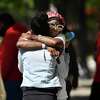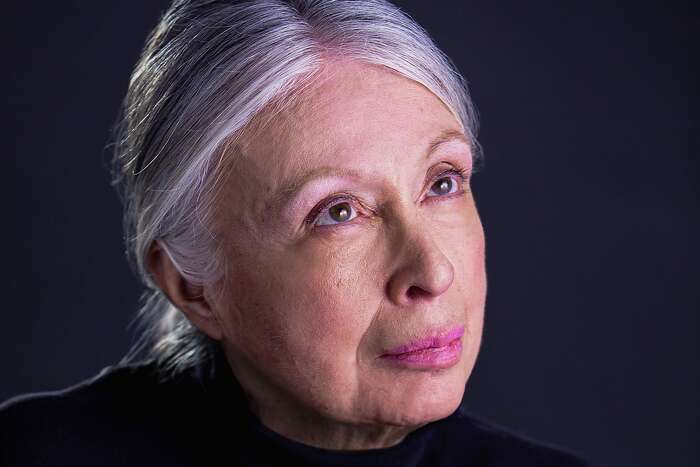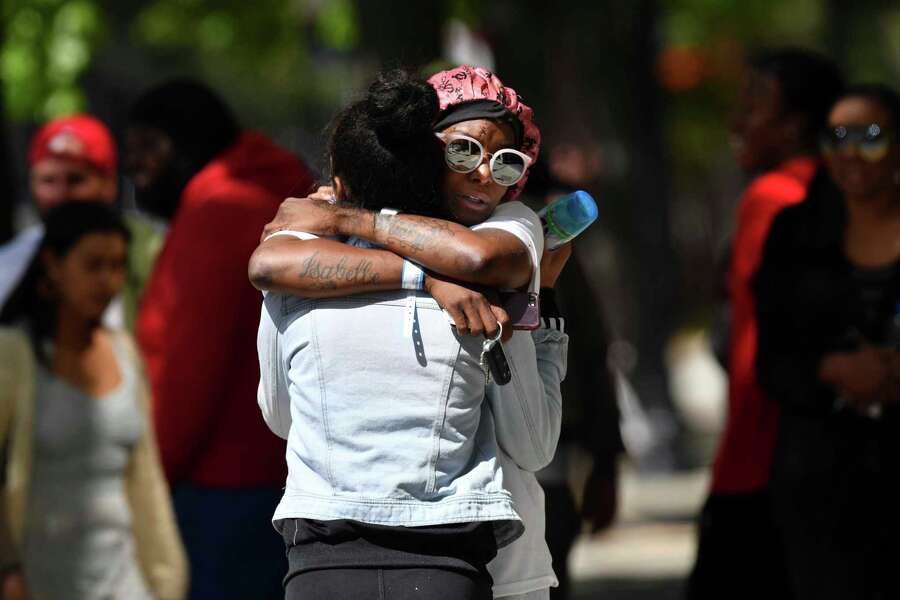San Francisco State University’s business school will benefit from a huge new donation of $25 million — though no check is in the mail.
On Thursday, campus officials announced they had received the nation’s largest gift ever made to a university in cryptocurrency. The donation — from investor Chris Larsen, an alumnus; his wife, Lyna Lam; and their nonprofit, Rippleworks — amounted to about 56 million XRP tokens in November when it arrived on campus.
Today, those 56 million XRP buy 18 percent fewer dollars than in the fall, thanks to wildly fluctuating values for digital money. But San Francisco State and its business school can rest easy. The full $25 million will arrive.
“Chris, bless his soul, said, ‘Look, I’ll guarantee this,’” campus President Les Wong told The Chronicle. “It will transform the College of Business, without a doubt,” by letting the school greatly expand the financial education it provides to students.
The gift will pay for an endowed chair in financial technology and another in entrepreneurship, each for $8 million. The remaining $9 million will initiate the Lam-Larsen Fund for Global Innovation. As university officials announced the donation at the Masonic Auditorium in San Francisco, Larsen surprised his wife with the news that the school will be renamed the Lam Family College of Business. Lam’s sisters and other relatives graduated from San Francisco State.

The process of accepting cryptocurrency is not for the faint of heart, university officials acknowledged. To make it happen, they’ve had to convert the digital dough into actual dough — at a pace slow enough to avoid flooding the market with millions of XRPs.
Not only did they have questions about the loss of value, they worried about hackers gaining access to the gift and causing the whole thing to backfire.
Even though the earliest cryptocurrency, bitcoin, is 10 years old, and XRP is three years younger, ethereal cash systems are so new to universities across the country that many wonder why a well-worn checkbook and a scribbled signature won’t do just as well.
Chris Larsen explained, saying his crypto-gift offers San Francisco State something beyond just the cash: Students will learn about cryptocurrency and other new forms of global finance.
“We want to make sure that San Francisco State is at the cutting edge of financial technology,” Larsen said. He described cryptocurrency as “like a second internet” — rather than moving data around as the traditional web does, the parallel internet for finance moves “value.”
“That’s a really big deal,” he said.
San Francisco State officials needed to gain their own education in financial technology to accept the gift. They became such good students that other universities now ask their advice. The Association of Governing Boards of Universities and Colleges has invited San Francisco State to give a talk about how to accept crypto-gifts, and Presidency, the magazine of the American Council on Education, has commissioned an article.
Yet when university officials learned of the gift offer last fall, they hesitated. “The concern we had was around security,” said Venesia Thompson-Ramsay, interim vice president for university advancement.
So they spoke with their lawyers and experts in cryptocurrency. They discovered the need to slowly liquidate the tokens — a process that has continued since November — and they absorbed a new vocabulary: “market maker” (the expert who converts the tokens to dollars), “cold wallet” (a hacker-proof place for holding cryptocurrency apart from the internet) and “hot wallet” (a storage place for crypto-cash connected to the internet).
“We had to learn it, and teach ourselves,” Thompson-Ramsay said.
Wong, the campus president, said that by accepting the gift, San Francisco State positioned itself at the forefront of “a trend in philanthropy across the planet. This is the largest gift of this kind in U.S. higher education — but I don’t think it’s the last one. I think it’s the new frontier.”

Larsen, 58, grew up in 1960s Silicon Valley before it was Silicon Valley. His father was a United Airlines mechanic, and his mother was an illustrator.
Today, Forbes lists Larsen’s net worth at $1.9 billion, No. 1,227 on its list of billionaires. He co-founded Ripple, a global payments company that leverages XRP, in 2012 and remains executive chairman of its board.
Earlier, Larsen co-founded Prosper Marketplace in San Francisco, which lets people lend to and borrow money from one another without involving a bank. He’s said the concept came from a similar Vietnamese approach to lending called hui, practiced by Lam’s Cambodian family.
Larsen earned his bachelor’s degree from San Francisco State in 1984 and was named alumnus of the year in 2004 after making earlier donations.
His new cybergift is part of a campus campaign to raise $150 million, and is second in size only to a $26.8 million gift last fall from alumni donors George and Judy Marcus.
Nanette Asimov is a San Francisco Chronicle staff writer. Email: nasimov@sfchronicle.com Twitter: @NanetteAsimov




















